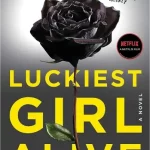
2 Sentence Summary
“This Is Water: Some Thoughts, Delivered on a Significant Occasion, about Living a Compassionate Life” is an essay by David Foster Wallace that was delivered as a commencement speech at Kenyon College on May 21, 2005. In just over 20 minutes, he covers the mundane yet relatable realities of adult life.
Summary Read Time: Less than 4 minutes
Actual Book Length: 138
First Published in: 2009
Below is the detailed yet quick summary of the book:
Lesson 1: On The Default Setting
Acknowledging the unconscious default setting of your mind is the first step. Unfortunately, this concept is still countercultural in mainstream society.
The true value of a liberal arts education is not about getting good grades or going to a prestigious school. It’s about learning how to think for yourself and how to find meaning in your life. It’s about learning how to be alone without being lonely, and how to connect with others without losing yourself.
We usually default to thinking that we are the center of the world. We consider that our immediate needs and feelings should determine the world’s priorities. But if we choose to think this way in a store or on the freeway, that’s fine. Lots of us do. Except thinking this way is so easy and automatic that it doesn’t have to be a choice. It is my natural default setting. It’s the automatic way that we experience the boring, frustrating, crowded parts of adult life when we operating on the automatic, unconscious belief that we are the center of the world.
If your only source of happiness and life’s meaning come from money and material things, then you will never have enough and always feel like you need more.
The “real world” is full of fear, anger, frustration, and craving. It’s easy to get caught up in that and forget your own default settings. But don’t let the real world discourage you from being your best self.
Lesson 2: On Choice & Thinking
You always have a choice in how you want to think about things. You can choose to see the positive in any situation – no matter how negative it might appear to be at first.
The education we receive here at this institution is not just about learning how to think, it’s about learning how to choose what thoughts are worth our time and energy.
The point is that petty, frustrating things like this are exactly where the work of choosing comes in. If I don’t make a conscious decision about how to think and what to pay attention to, I’m going to be angry and unhappy every time I have to go shopping.
You can choose how to see the events of your life play out. You are the one who gets to decide what has meaning and what doesn’t.
Lesson 3: On Awareness & Consciousness
Being present, paying attention, and keeping the truth up front are key to staying conscious and alive. Make it a habit to do these things every day, and you’ll notice a difference in your overall well-being.
As someone who has been out of college for 20 years, David slowly came to realize that the liberal arts cliché about teaching you how to think is actually shorthand for a much deeper, more serious idea. Learning how to think really means learning how to exercise some control over how and what you think. It means being conscious and aware enough to choose what you pay attention to and to choose how you construct meaning from experience. Because if you cannot exercise this kind of choice in adult life, you will be totally hosed.
The most dangerous thing about an academic education is that it can lead people to over intellectualize things and get lost in abstract arguments. This can prevent them from paying attention to what is happening right in front of them and what they are feeling.
If you’re always sure that you know what reality is, and you’re operating on your default setting, then you probably won’t bother considering possibilities that aren’t uncomfortable and unpleasant. But if you really learn how to pay attention, then you’ll realize there are other options. You’ll actually have the power to experience a crowded, hot, slow, consumer-hell type situation as not just meaningful, but sacred. You’ll experience this with the same force that made stars: love, fellowship, and the mystical oneness of all things.”
The key is to keep the truth at the forefront of your mind every day. It’s incredibly difficult to do this, to stay aware and present in the everyday world. But if you can manage it, it will be worth it.





